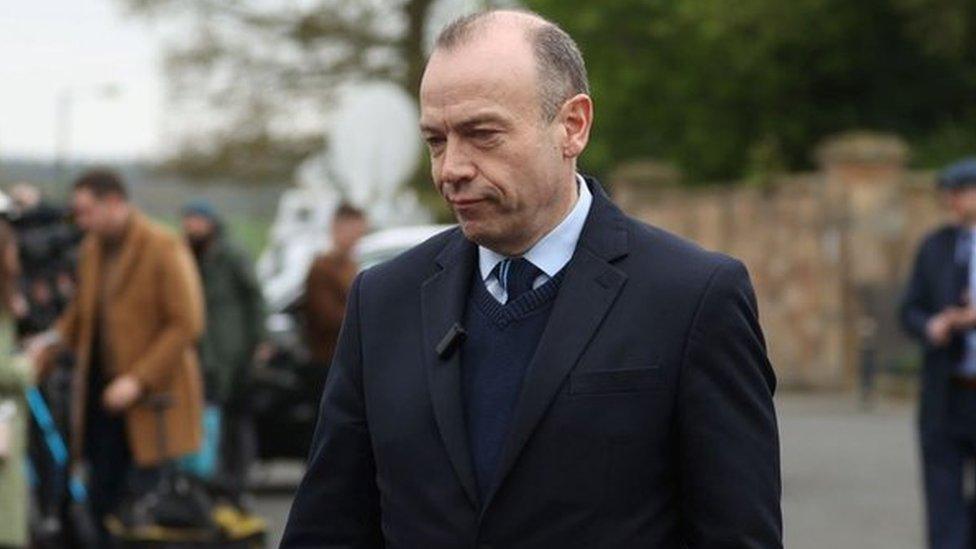NI budget: It could have been worse, but it's still painful
- Published

This budget could have been worse. But make no mistake, it is still likely to mean deteriorating public services for NI citizens.
The blow has been softened a little by allowing last year's £300m overspend to be repaid over two years instead of one.
The repayments will be drawn from any new money sent from Westminster later this year rather than being immediately chopped from departmental funds.
But that will present a significant challenge to the senior civil servants currently running Stormont.
There is an expectation that the UK government will eventually provide extra money to settle public-sector pay disputes in England.
That will automatically mean extra funding for Stormont.
But that raises the prospect that the senior officials will then have to tell their workforces that they will not get a pay deal to match England because the overspend comes first.
That is not a recipe for industrial peace.
And even with that concession on the overspend, the departmental spending totals still look grim.
Impact of inflation
Health and infrastructure will have a little extra for day-to-day spending, though so little it is referred to as "flat cash" in the public finance jargon.
The Department of Health usually works on the basis that it needs an annual increase of 6% to stand still, given demographic pressures and some costs unique to healthcare.
So an effectively frozen budget will feel like a cut.
Across all other departments, cash totals are being cut, which will be further magnified by the cost of inflation.
The public sector uses a different measure of inflation to the Consumer Prices Index (CPI), which is most commonly used in discussions about price rises, but the inflation it experiences is still significant.
We have already begun to see what this will mean, particularly for education.
In recent weeks that department has effectively had to unwind a whole series of policies aimed at giving additional support to vulnerable children and their families.
Expect this to be repeated across other departments as they focus their resources primarily on those services they are legally obligated to provide.
Related topics
- Published27 April 2023
